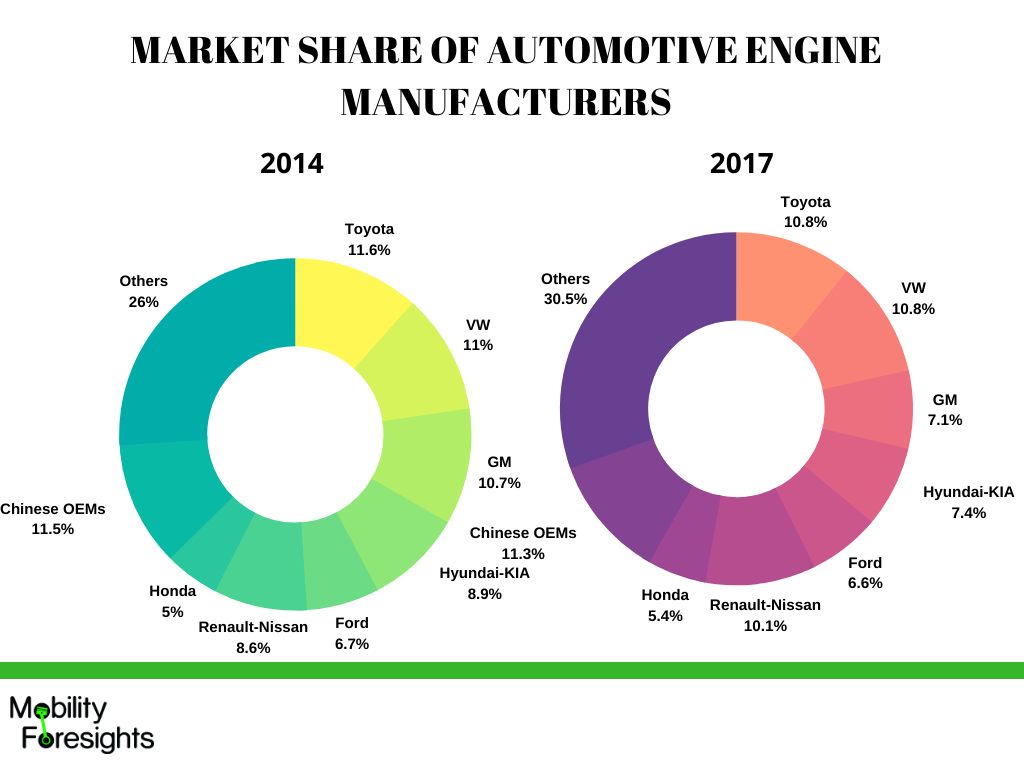China's Automotive Market: A Case Study Of BMW And Porsche's Struggles

Table of Contents
Intense Competition and Market Saturation
The explosive growth of China's automotive market has led to intense competition and market saturation, significantly impacting established international brands. Two key factors contribute to this challenge: the rise of domestic brands and shifting consumer preferences.
The Rise of Domestic Brands
The rapid ascent of Chinese automakers like BYD, NIO, and Xpeng is a significant threat to established luxury brands. These domestic players are leveraging several key advantages:
- Increased affordability and technological advancements of domestic EVs: Chinese electric vehicles (EVs) are increasingly affordable and technologically advanced, offering competitive features at lower price points, directly impacting the sales of traditional gasoline-powered luxury vehicles.
- Strong local after-sales service and understanding of consumer preferences: Domestic brands offer superior after-sales service tailored to the Chinese market and a deep understanding of local consumer preferences, building trust and loyalty.
- Government subsidies and incentives for domestic EVs: Government support in the form of subsidies and incentives further strengthens the competitive position of domestic EV manufacturers, making them even more attractive to price-conscious buyers. This preferential treatment creates a significant hurdle for foreign brands competing in the EV segment of China's automotive market.
Price Sensitivity and Shifting Consumer Preferences
While the luxury segment still holds appeal, Chinese consumers are demonstrating increased price sensitivity and a preference for value-for-money propositions. This is driving changes in demand:
- The preference for SUVs and electric vehicles is growing significantly: The shift towards SUVs and EVs requires international brands to adapt their product portfolios and invest heavily in these segments to remain competitive within China's automotive market.
- Younger generations are driving demand for technologically advanced features and personalized experiences: Chinese millennials and Gen Z prioritize technologically advanced features, personalized in-car experiences, and connectivity, necessitating innovative approaches from established brands.
- The market is demanding greater fuel efficiency and environmentally friendly options: Growing environmental awareness is pushing demand towards fuel-efficient vehicles and EVs, putting pressure on brands to offer greener options.
Navigating Regulatory Hurdles and Supply Chain Disruptions
Operating within China's automotive market requires navigating complex regulatory hurdles and mitigating supply chain vulnerabilities.
Stringent Emission Standards and Localization Requirements
China's government is implementing increasingly strict emission standards and localization requirements, presenting significant challenges:
- Meeting stringent emission standards necessitates significant investment in R&D and adaptation: Compliance requires substantial investment in research and development to adapt existing models or develop new vehicles that meet these stringent standards, increasing operational costs.
- Localization policies require significant investment in local production and supply chains: To benefit from government incentives and comply with regulations, foreign automakers need to invest heavily in local manufacturing facilities and establish partnerships with local suppliers, a complex and costly undertaking.
- Navigating complex bureaucratic processes adds to operational costs and delays: The bureaucratic processes involved in obtaining approvals and navigating regulations increase operational costs and lead to delays in launching new models, impacting time-to-market.
Geopolitical Factors and Supply Chain Vulnerabilities
Global supply chain disruptions and geopolitical tensions have created additional challenges:
- The impact of the pandemic on global supply chains has exacerbated existing challenges: The COVID-19 pandemic significantly disrupted global supply chains, creating shortages of parts and materials, further impacting production and sales in China's automotive market.
- Trade disputes and geopolitical instability create uncertainty and risk for foreign investors: Geopolitical uncertainty and trade disputes introduce considerable risk for foreign automakers investing in China's automotive market, impacting investment decisions and long-term strategies.
- Diversifying supply chains and strengthening partnerships are crucial for mitigation: To mitigate risks, foreign brands need to diversify their supply chains, strengthen partnerships with local suppliers, and build resilience to potential disruptions.
BMW and Porsche's Specific Challenges and Strategies
BMW and Porsche, despite their strong brand recognition, are facing specific challenges and employing distinct strategies within China's automotive market.
BMW's Response to Market Dynamics
BMW is actively adapting its strategy to address the challenges:
- Increased investment in R&D for electric and hybrid vehicles: BMW is significantly investing in research and development to develop and launch a broader range of electric and hybrid vehicles to meet the growing demand in the Chinese market.
- Expansion of local manufacturing facilities and partnerships with local suppliers: BMW is expanding its local manufacturing capabilities and forging stronger partnerships with Chinese suppliers to better meet local demand and comply with localization requirements.
- Tailored marketing campaigns focusing on Chinese consumer preferences: BMW is adapting its marketing strategies to resonate better with the evolving preferences of Chinese consumers, focusing on digital marketing and localized messaging.
Porsche's Approach to the Competitive Landscape
Porsche is focusing on its strengths while strategically adapting to the changing market:
- Maintaining a focus on luxury and performance, catering to a niche market: Porsche is maintaining its focus on the high-end luxury and performance segment, catering to a niche market less affected by price sensitivity.
- Strategic introduction of electric vehicles within its product portfolio: Porsche is strategically introducing electric vehicles into its portfolio, leveraging its brand reputation while adapting to the growing EV market.
- Emphasis on brand experience and exclusive customer service: Porsche is focusing on enhancing the brand experience and providing exclusive customer service to maintain its premium positioning within the competitive landscape of China's automotive market.
Conclusion
China's automotive market remains a complex and challenging environment, demanding significant adaptation and strategic foresight from international brands like BMW and Porsche. While intense competition, regulatory hurdles, and supply chain disruptions present obstacles, successful navigation requires a multifaceted approach. This includes investments in electric vehicle technology, localized production, tailored marketing strategies, and a robust understanding of evolving consumer preferences. Understanding the intricacies of China's automotive market is crucial for international players seeking long-term success. Companies must proactively adapt to stay competitive in this dynamic landscape. Further research into specific brand strategies within China's automotive market will reveal further insights into navigating this challenging but ultimately rewarding market.

Featured Posts
-
 Stricter Uk Visa Applications Impact On Certain Nationalities
May 10, 2025
Stricter Uk Visa Applications Impact On Certain Nationalities
May 10, 2025 -
 Netflix Marriage And Comedy Bert Kreischers Personal Journey
May 10, 2025
Netflix Marriage And Comedy Bert Kreischers Personal Journey
May 10, 2025 -
 Uk Student Visa Restrictions Impact On Pakistani Students And Asylum Seekers
May 10, 2025
Uk Student Visa Restrictions Impact On Pakistani Students And Asylum Seekers
May 10, 2025 -
 New Uk Visa Policy Implications For Nigeria And Pakistan
May 10, 2025
New Uk Visa Policy Implications For Nigeria And Pakistan
May 10, 2025 -
 Un Debut D Incendie A La Mediatheque Champollion De Dijon
May 10, 2025
Un Debut D Incendie A La Mediatheque Champollion De Dijon
May 10, 2025
